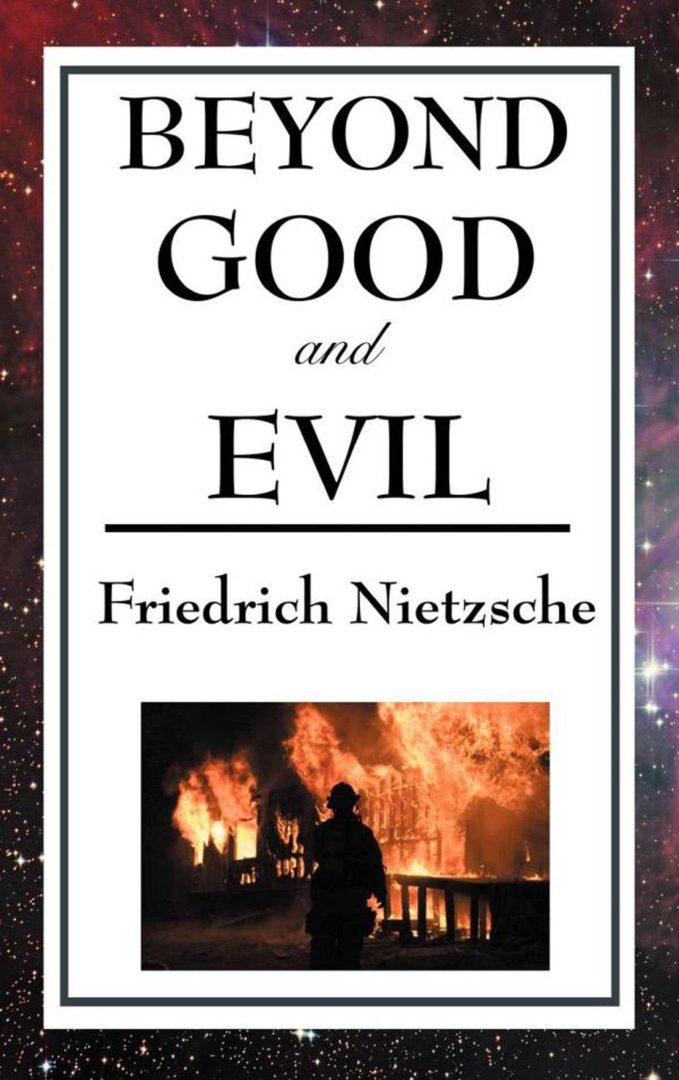Table of Contents
A War Against Morality
If Thus Spoke Zarathustra was Nietzsche’s gospel, Beyond Good and Evil (1886) is his scalpel—a sharp, polemical dissection of Western philosophy, morality, and the herd-like tendencies of modern thought. Here, Nietzsche trades the lyrical mysticism of Zarathustra for direct engagement with the canon, critiquing thinkers from Plato to Kant and demolishing the illusion of objective morality with surgical precision.
Written shortly after Zarathustra, this work is more systematic, aphoristic, and argumentative. It is Nietzsche at his most concentrated: mordant, incisive, often venomous—always exhilarating. It aims to replace the morality of “truth and virtue” with one rooted in instinct, life, and power.
Core Themes: Truth, Morality, and the Instincts of Thought
The Prejudices of Philosophers
Nietzsche opens with a devastating claim: philosophers are not lovers of truth but defenders of unacknowledged instincts. Their systems, he argues, are rationalizations—moral prejudices dressed as metaphysics. “Every great philosophy,” he writes, “is the personal confession of its author and a kind of involuntary and unconscious memoir.”
This is not relativism—it is a demand for deeper honesty. Philosophy, for Nietzsche, must become a critique of values, starting with its own foundations.
The Lie of Good and Evil
Nietzsche’s title points to his central target: the binary moral structure inherited from Christianity and reinforced by Enlightenment rationalism. Instead of a simple split between good and evil, he urges a return to an aristocratic value structure—a morality of strength, vitality, and creative power.
Slave morality, which glorifies humility, meekness, and equality, is for Nietzsche a reaction—a way for the weak to make virtues of their weakness. In contrast, master morality originates in strength, abundance, and the joy of life.
The Will to Power
Reappearing here in less mythic form, the will to power is Nietzsche’s proposed foundation of psychology: a primal drive not merely for survival or pleasure, but for expansion, expression, and overcoming. All thought, including philosophy and religion, is in some way an extension of this drive.
In this light, even the pursuit of truth becomes suspect: is it motivated by curiosity, or by the need to dominate, to stabilize, to impose order?
Perspectivism
Nietzsche does not believe in absolute truth but neither does he collapse into nihilism. Instead, he offers perspectivism—the idea that knowledge is always from a point of view, conditioned by the interpreter’s nature. There is no “view from nowhere.” Instead, there are many angles, each revealing and concealing.
This opens a new kind of epistemology: not “What is true?” but “Who is strong enough to bear certain truths?”
The Free Spirit
Nietzsche’s ideal reader is the free spirit—a thinker unafraid of solitude, heresy, or danger. The free spirit transcends both religious orthodoxy and scientific dogma, affirming life even in its chaos. They do not seek comfort in systems—they revel in risk, uncertainty, and the artistry of thought itself.
Aphorisms as Weapons
Unlike traditional philosophical works, Beyond Good and Evil unfolds in numbered aphorisms—ranging from a few lines to several pages. This form mirrors Nietzsche’s epistemology: fragments of insight rather than systems of thought.
It is also strategic. Nietzsche knows that truth must be seductive, not didactic. He writes with wit, venom, and a theatrical flair for contradiction. The reader is drawn into a dance of paradoxes—forced to think, not follow.
Influence and Legacy
Beyond Good and Evil became a cornerstone of 20th-century existentialism, post-structuralism, and psychological theory. Nietzsche’s insights into power, values, and the unconscious resonated with thinkers like Freud, Foucault, Camus, and Deleuze. His critique of herd morality anticipates the modern analysis of ideology, conformity, and mass culture.
More radically, Nietzsche helped decenter philosophy from truth to life—from logic to experience, from concepts to instincts. His refusal to idealize suffering or deny human complexity cleared a space for thinkers unafraid of darkness, doubt, and the tragic.
Strengths and Limitations
Strengths:
- Penetrating Moral Critique: Cuts through inherited moralities with rare clarity and force.
- Psychological Depth: Offers profound insights into the motives behind beliefs.
- Provocative Style: Aphoristic brilliance rewards careful, recursive reading.
Limitations:
- Elitism and Ambiguity: Nietzsche’s praise of nobility and strength can border on aristocratic disdain.
- Risk of Misuse: His language on power and hierarchy has been misappropriated by authoritarian ideologies.
- Lack of System: Those expecting a linear argument may be disoriented by the aphoristic structure.
Who Should Read It?
This book is suited for:
- Readers ready to confront and question foundational moral assumptions
- Students of modern philosophy, particularly ethics, epistemology, and political theory
- Those seeking a sharp counterpoint to religious or utilitarian moral systems
- Writers, artists, and thinkers drawn to paradox, ambiguity, and creative destruction
TL;DR
Beyond Good and Evil is not a comfortable read. It is a challenge thrown at the feet of the moral order, a reckoning with the pieties of modern thought. Nietzsche doesn’t ask you to agree—he dares you to outgrow. He demands readers strong enough to examine their deepest drives, their need for meaning, and their inherited values.
He once wrote: “He who has a why to live can bear almost any how.” Beyond Good and Evil is not a philosophy of the “why”—but a brutal excavation of how our whys are born, and whether we are brave enough to question them.

Leave a Reply